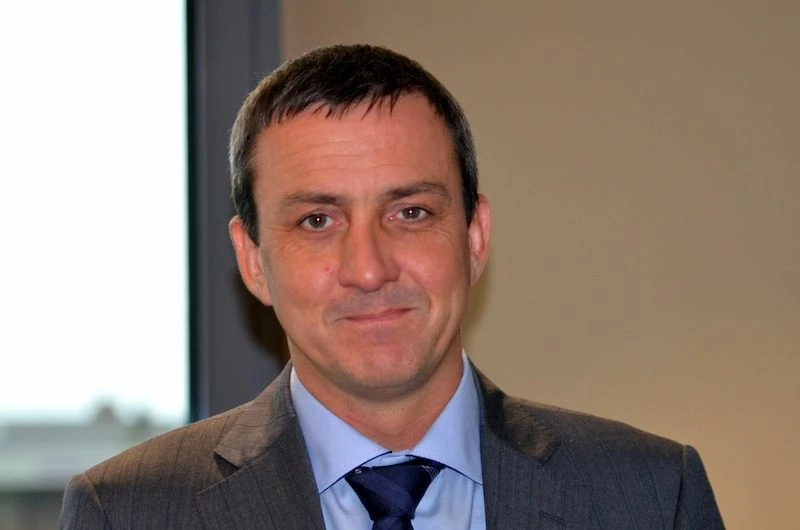
Partner Article
Become sustainable for profitability, not just green credentials
It’s environment focus week on Bdaily, and we are looking at what the low-carbon economy really means for UK SMEs, as well as picking apart the nuts and bolts of adapting business to “go-green.“ Here, Andy Pilley, managing director of BES, talks about driving profits and staying ahead of the competition through sustainability features.
With global pressures brow-beating British entrepreneurs, the quest to become sustainable and more energy-efficient can appear low on the agenda of many UK businesses, particularly SMEs as yet untouched by mandatory carbon reporting regulations. But therein lies a warning - that of ignoring energy efficiency at your peril if you are fighting to compete with larger businesses who are bringing energy efficiency measures on board to comply with Government legislation. If your main platform for competing with larger organisations is based on cost, your strength could rapidly become a weakness if your competitors begin to make savings through energy efficiency measures. If you wish to compete on the same playing field going forward, you too need to make sustainability your goal.
In the past, energy efficiency has been linked to heavy expenditure on new heating systems, plant and technologies. It isn’t surprising that many smaller businesses have sidelined energy efficiency when it has entailed such heavy outlay. Now, however, things are changing and businesses are increasingly making savings through behavioural switches and new cultural attitudes towards energy usage.
During the recession, all the altruistic reasons for being green and sustainable have largely been subservient to the more bread and butter notion of having to save money in order to survive and stay profitable. With finite fossil fuel resources at the country’s disposal, energy prices have remained at a level unpalatable to many businesses – something BES as a commercial gas and electricity supplier appreciates. While helping our customers as much as we can (we were one of only a few suppliers in April 2012 to lower our already competitive prices for commercial electricity, for instance), we are increasingly trying to communicate to businesses that energy efficiency makes sound financial sense. While they cannot influence global fuel prices, many businesses can control the amount of energy they consume and keep costs in check.
To assist this, BES provides all new commercial electricity customers with a free-of-charge smart meter, through which to monitor electricity consumption. This removes the need for the estimated bills that can decimate cash flow forecasts, as all meter information is communicated in real time.
At another level, however, we are trying to champion energy efficiency and extol its virtues through an SME’s eyes. “Being green” is fundamentally about cost control, achieving core strategic competencies, being leaner and meaner and preparing for that almost inevitable day when the carbon emissions regulations will hit your business.
It’s about competing, ensuring nobody gets a competitive advantage over you and appealing to the increasing number of consumers wishing to only do business with those with environmentally sound policies. By becoming sustainable, you can enhance your brand reputation, tap new markets and build better relationships with all of your stakeholders.
Fuel prices are not going to tumble dramatically and it will take years for renewable and nuclear power to make a difference. Your route to lower energy costs is not blowing in the wind, however, but in your hands. Examine how you can make a tangible difference to costs and your business may well become re-energised.
Here are some other environment focus articles that may be of interest to you: carbon reporting in logistics firms; what are the benefits of electric vehicles?; we talk to a print business about why SMEs need to go green; find out how one innovative business is using ozone as a cleaning tool; what does sustainability really mean to your business?; funding support for green businesses; a green adaptation case study; and why innovation is needed to finance energy efficiency.
This was posted in Bdaily's Members' News section by Andy Pilley .
Enjoy the read? Get Bdaily delivered.
Sign up to receive our popular morning National email for free.








 Raising the bar to boost North East growth
Raising the bar to boost North East growth
 Navigating the messy middle of business growth
Navigating the messy middle of business growth
 We must make it easier to hire young people
We must make it easier to hire young people
 Why community-based care is key to NHS' future
Why community-based care is key to NHS' future
 Culture, confidence and creativity in the North East
Culture, confidence and creativity in the North East
 Putting in the groundwork to boost skills
Putting in the groundwork to boost skills
 £100,000 milestone drives forward STEM work
£100,000 milestone drives forward STEM work
 Restoring confidence for the economic road ahead
Restoring confidence for the economic road ahead
 Ready to scale? Buy-and-build offers opportunity
Ready to scale? Buy-and-build offers opportunity
 When will our regional economy grow?
When will our regional economy grow?
 Creating a thriving North East construction sector
Creating a thriving North East construction sector
 Why investors are still backing the North East
Why investors are still backing the North East